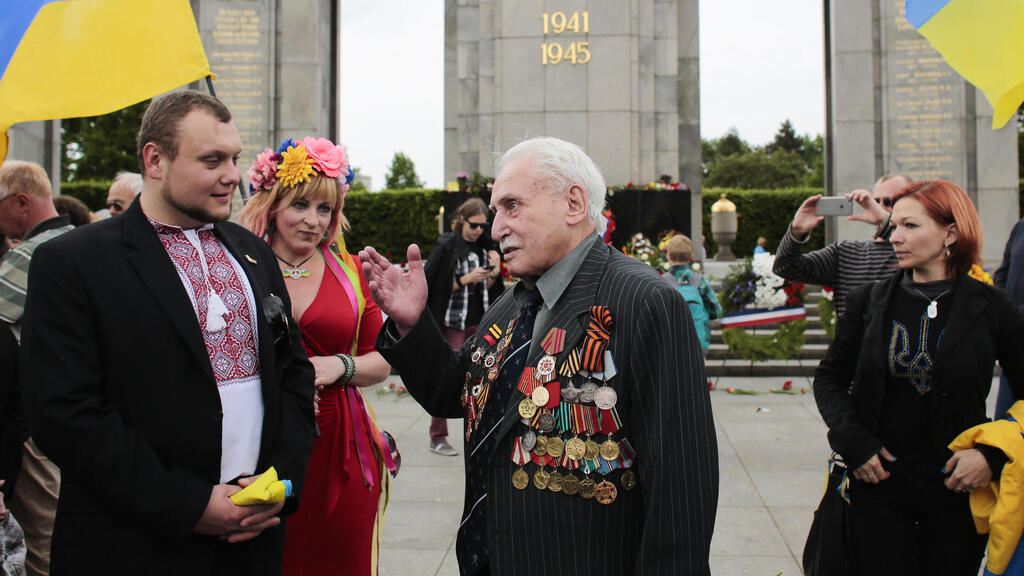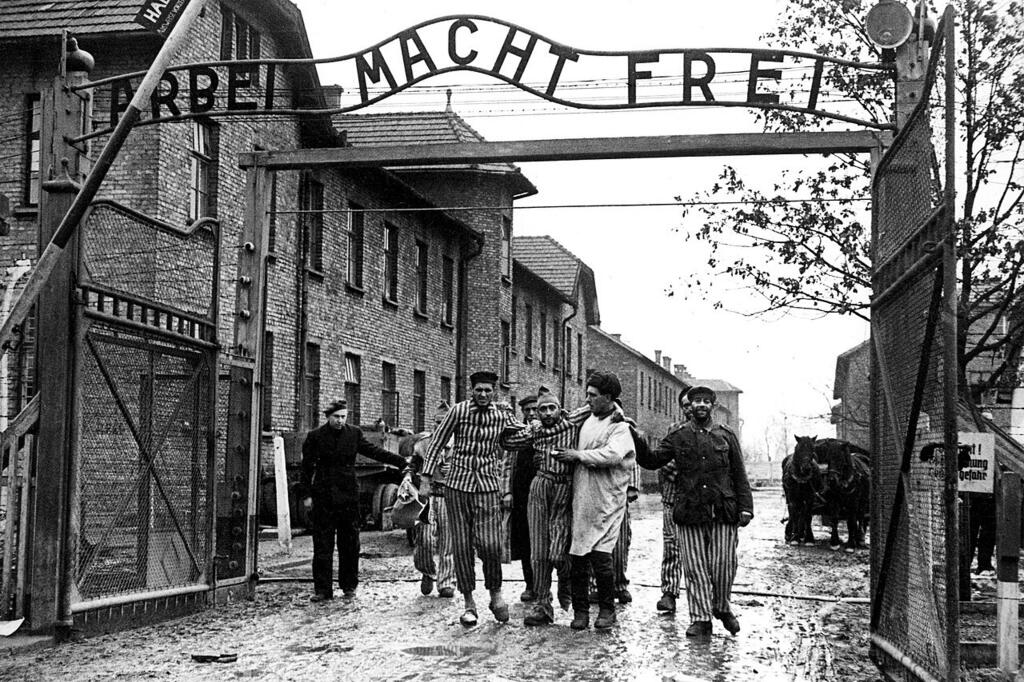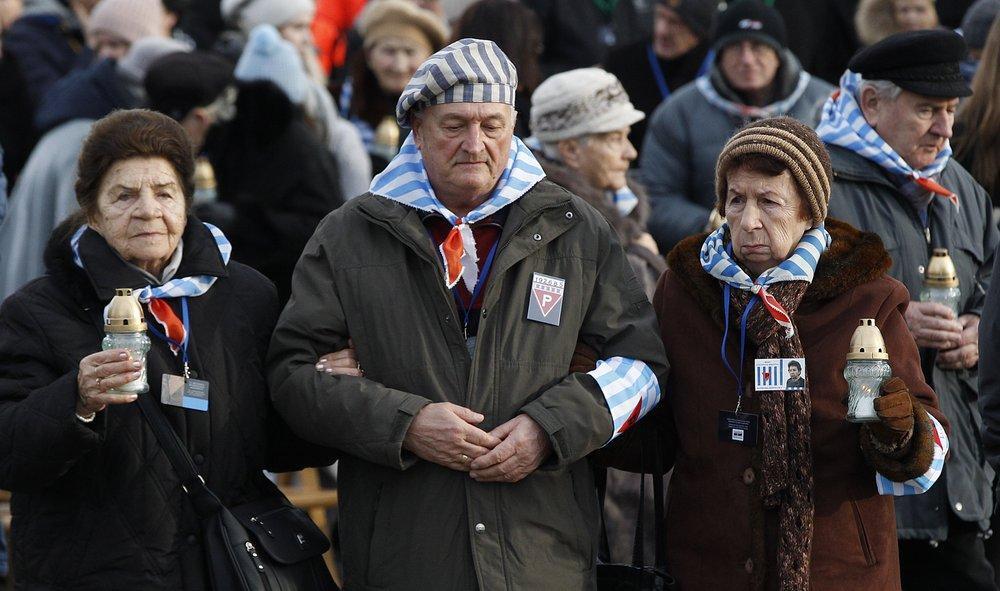David Dushman, the last surviving soldier who took part in the liberation of the Nazi death camp at Auschwitz in 1945, has died at the age of 98.
Dushman, a Red Army soldier who later became an international fencer, died on Saturday, the International Olympic Committee said in a statement.
3 View gallery


Soviet war veteran David Dushman at the Russian War Memorial in the Tiergarten district of Berlin, Germany, June 6, 2021
(Photo: AP)
On January 27, 1945, he used his T-34 Soviet tank to mow down the electric fence of Auschwitz in Nazi-occupied Poland, helping to set prisoners in the death camp free.
"We hardly knew anything about Auschwitz," he said, recounting that day in an interview in 2015 with Sueddeutsche daily.
But he saw "skeletons everywhere".
"They staggered out of the barracks, sat and lay among the dead. Terrible. We threw them all our canned food and immediately went on to hunt down the fascists," he said.
Only after the end of the war did he learn about the scale of the atrocities in the camp.
3 View gallery


Soviet soldiers liberating the Auschwitz concentration camp in Poland
(Photo: Getty Images)
Charlotte Knobloch, president of the Jewish Community of Munich and Upper Bavaria, said Dushman's death was "particularly painful".
"Dushman was on the front line when the Nazi murder machinery was smashed in 1945; as the 'Hero of Auschwitz' he was one of the liberators of the concentration camp and saved countless lives," she said in a statement.
"Today, he was one of the last to be able to recount this event from his own experience," she added, describing Dushman as a "brave, honest and sincere man".
Of the six million Jews killed in the Holocaust, more than one million were murdered at Auschwitz-Birkenau, most in its notorious gas chambers, along with tens of thousands of others including homosexuals, Roma and Soviet prisoners of war.
Dushman was one of 69 soldiers in his division who survived the war, but he suffered serious injuries. Nevertheless, he went on to become a top fencer in the Soviet Union and later one of the world's greatest fencing coaches, the IOC said.
3 View gallery


survivors of the Nazi death camp Auschwitz arrive for a commemoration ceremony on International Holocaust Remembrance Day at the International Monument to the Victims of Fascism inside Auschwitz-Birkenau in Oswiecim, Poland
(Photo: AP)
Dushman coached the Soviet Union's women's fencing team from 1952 to 1988, and it was in this position that he also witnessed the massacre of 11 Israeli team members by the radical Palestinian Black September group at the Munich Olympics in 1972.
His lodgings at that time lay directly across from those of the Israelis. IOC chief Thomas Bach voiced sadness about Dushman's death. "When we met in 1970, he immediately offered me friendship and counsel, despite Mr Dushman's personal experience with World War II and Auschwitz, and he being a man of Jewish origin," said Bach, who is German."This was such a deep human gesture that I will never ever forget it," added the IOC president.
Dushman lived in Austria for several years in the 1990s before relocating in 1996 to Munich, where German media said he died.Up to four years ago, he was still going almost daily to his fencing club there to give lessons, the IOC said.

